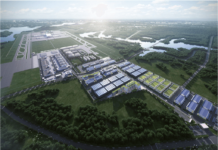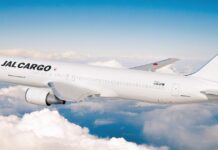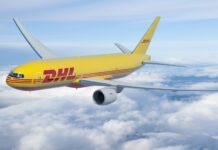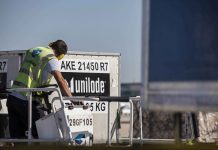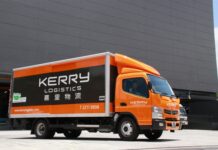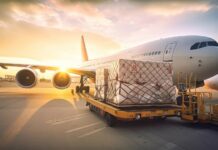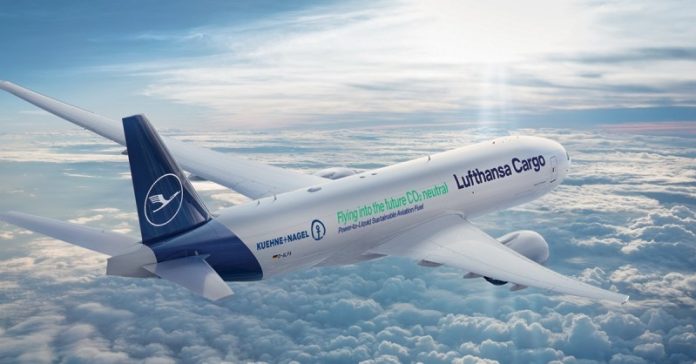
Kuehne+Nagel and Lufthansa Cargo have agreed on an exclusive partnership to promote and use synthetic fuel from NGO atmosfair based in Berlin. The logistics service providers have jointly committed to supporting the world’s first production site for synthetic SAF in Werlte, Emsland (Germany), by purchasing 25,000 litres per year for the next five years. Synthetic fuels have not yet been produced industrially but are available only in laboratory quantities. This fuel is considered to be the fuel of the future, capable of bringing the CO2 footprint of aircraft engines to zero.
Yngve Ruud, Member of the Management Board of Kuehne+Nagel, responsible for Air Logistics, commented: “Already now, Kuehne+Nagel customers can avoid carbon emissions of their shipments globally with our bio SAF solutions, and I am delighted to see that time has come for synthetic SAF as the long‐term solution for aviation. Furthermore, by securing the first power-to-liquid fuel production together with Lufthansa Cargo, we are sending a strong message of commitment and collaboration, inviting our industry colleagues and customers to join us in creating the low-carbon economy of the future already today.”
“We clearly see the key to a sustainable reduction of our emissions in flight operations in the research and use of synthetic, sustainable aviation fuels. The fact that we are now pioneering power-to-liquid technology together with Kuehne+Nagel makes us particularly proud. It shows once again that we are actively tackling our climate protection challenges,” Dorothea von Boxberg, CEO Lufthansa Cargo, explained the strategic background to the partnership with Kuehne+Nagel.
With characteristics almost identical to those of conventional jet fuel, sustainable aviation fuels are an essential pillar on the way to CO2 neutral flying. There are two main types of sustainable aviation fuel – bio SAF and synthetic SAF.

Until now, Kuehne+Nagel and Lufthansa Cargo have used bio SAF to reduce the carbon footprint of air freight. While bio SAF is produced from biomass (waste products and feedstocks with low carbon content), the primary energy source and feedstocks for the production of synthetic SAF are renewable electricity, water and carbon dioxide (CO2). Therefore, synthetic SAF is considered the long‐term solution for the industry as it can be produced without availability limits, avoiding biomass supply limitations, and can reduce emissions up to 100%.
อัพเดตข่าวสารและบทความที่น่าสนใจในอุตสาหกรรมโลจิสติกส์ก่อนใคร ผ่าน Line Official Account @Airfreight Logistics เพียงเพิ่มเราเป็นเพื่อน @Airfreight Logistics หรือคลิกที่นี่


